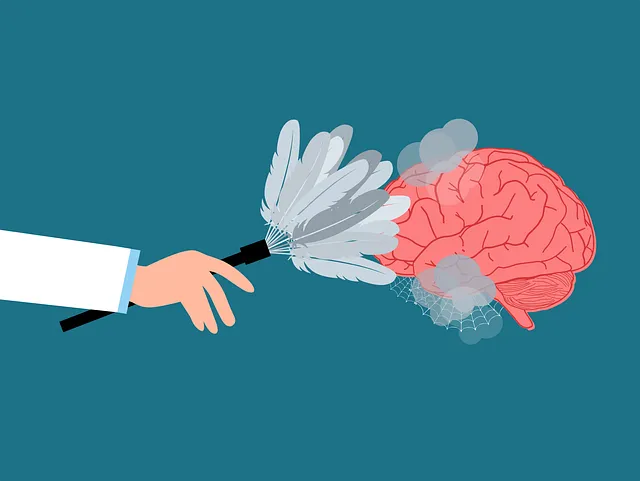Westminster Kaiser's mental health advocacy initiatives prioritize holistic well-being through comprehensive programs that educate, empower, and destigmatize mental health issues. Their tailored therapy, peer support, and stress management workshops, coupled with risk assessment tools and burnout prevention strategies, benefit employees and the community. Community engagement is a core driver, with educational workshops, public awareness campaigns, and multimedia platforms ensuring accessibility and cultural competence. Success is measured through tangible improvements in individuals' lives, utilizing evidence-based practices and data-driven methods to continuously enhance programs based on community needs.
Mental health advocacy initiatives are crucial in fostering inclusive communities and improving access to support. This article delves into the essential components of such efforts, offering a comprehensive guide to understanding and enhancing mental wellness. We explore Westminster Kaiser’s innovative approach to mental health programs, emphasizing community engagement and education as powerful tools. By examining Measuring Success, we uncover how to evaluate the impact of these initiatives, ensuring they resonate with those in need. Discover how these strategies revolutionize support networks, fostering a healthier society.
- Understanding Mental Health Advocacy: A Necessary Conversation
- Westminster Kaiser's Approach to Mental Health Programs
- Community Engagement and Education: Building Support Networks
- Measuring Success: Evaluating the Impact of Mental Health Initiatives
Understanding Mental Health Advocacy: A Necessary Conversation

Mental health advocacy initiatives are crucial conversations that bring much-needed attention to an often overlooked aspect of our well-being. Advocacy goes beyond raising awareness; it involves empowering individuals and communities to understand, support, and promote mental health in meaningful ways. This includes educating the public about various mental health conditions, dispelling myths, and encouraging open dialogue without stigma.
In today’s fast-paced world, organizations like Westminster Kaiser play a pivotal role in fostering these conversations. Their mental health programs offer resources for stress reduction methods, risk assessment tools for professionals, and burnout prevention strategies for healthcare providers. By addressing these aspects, they contribute to a holistic approach that not only treats but also prevents mental health issues, ensuring a healthier and more supportive society.
Westminster Kaiser's Approach to Mental Health Programs

Westminster Kaiser takes a holistic approach to mental health programs, recognizing that well-being is intricately linked to overall productivity and satisfaction. Their initiatives focus on fostering a culture of care within the organization by offering diverse support systems. One key strategy involves providing Westminster Kaiser mental health programs tailored to meet individual needs, encompassing therapy sessions, peer support groups, and accessible resources for stress management workshops. These programs aim to equip employees with effective coping mechanisms and self-care practices.
Additionally, Westminster Kaiser emphasizes the importance of Risk Management Planning for Mental Health Professionals, ensuring a safe and supportive environment. Through regular training sessions, they educate their workforce on recognizing and managing workplace stressors while promoting healthy communication and collaboration. By integrating these comprehensive programs, Westminster Kaiser demonstrates its commitment to not only improving mental health outcomes but also enhancing job satisfaction and employee retention.
Community Engagement and Education: Building Support Networks

Community engagement is a cornerstone of mental health advocacy initiatives, fostering support networks that empower individuals and families to navigate challenging topics with increased understanding and resilience. Westminster Kaiser’s mental health programs prioritize community involvement by offering educational workshops, public awareness campaigns, and collaborative partnerships with local organizations. These efforts aim to destigmatize mental health issues, promote early intervention, and ensure access to resources for all.
Through interactive sessions led by expert healthcare providers, these programs address a wide range of topics, including stress management, emotional well-being, and coping strategies. Moreover, the inclusion of Trauma Support Services and Mental Wellness Podcast Series Production highlights the diverse approaches taken to meet the unique needs of different communities. By leveraging multimedia platforms and engaging community leaders, Westminster Kaiser amplifies its reach, ensuring that mental health resources are accessible, relevant, and culturally competent for every individual.
Measuring Success: Evaluating the Impact of Mental Health Initiatives

Evaluating the success of mental health initiatives is a crucial aspect of ensuring their effectiveness and long-term impact. Measuring success goes beyond simple satisfaction surveys; it involves assessing tangible improvements in individuals’ lives. For instance, programs like those offered by Westminster Kaiser have shown promising results by focusing on evidence-based practices. These include techniques for coping skills development, encouraging positive thinking, and fostering inner strength development, which have been proven to reduce symptoms of anxiety and depression over time.
By setting clear goals and utilizing data-driven methods, organizations can track the number of individuals reached, the frequency of service utilization, and the degree of improvement in mental health outcomes. This evaluation process allows for continuous improvement, ensuring that programs remain relevant and tailored to the evolving needs of their communities.
Mental health advocacy initiatives, as exemplified by Westminster Kaiser’s programs, underscore the power of community engagement and education in fostering supportive networks. By understanding mental health advocacy and measuring success through evaluation, we can ensure these efforts have a tangible impact. Integrating these strategies promotes holistic well-being, reflecting a necessary conversation that is vital to enhancing societal resilience and individual recovery. The Westminster Kaiser mental health programs serve as a testament to the transformative potential of focused, community-driven initiatives.






